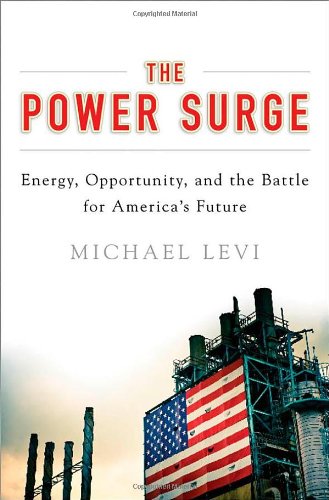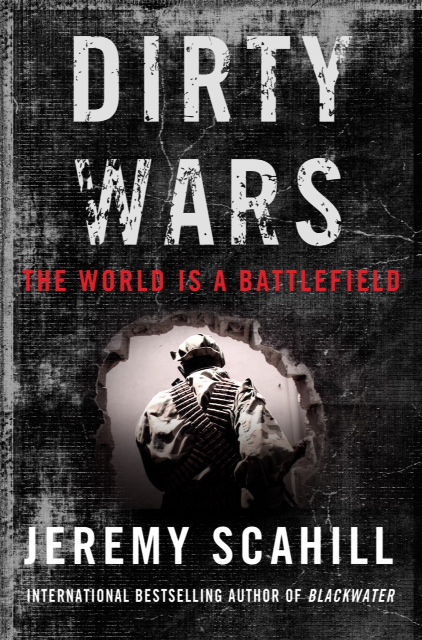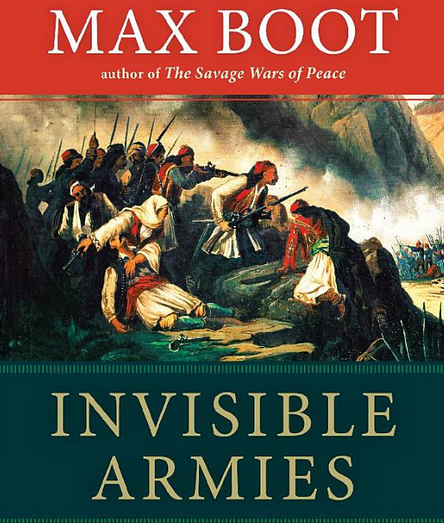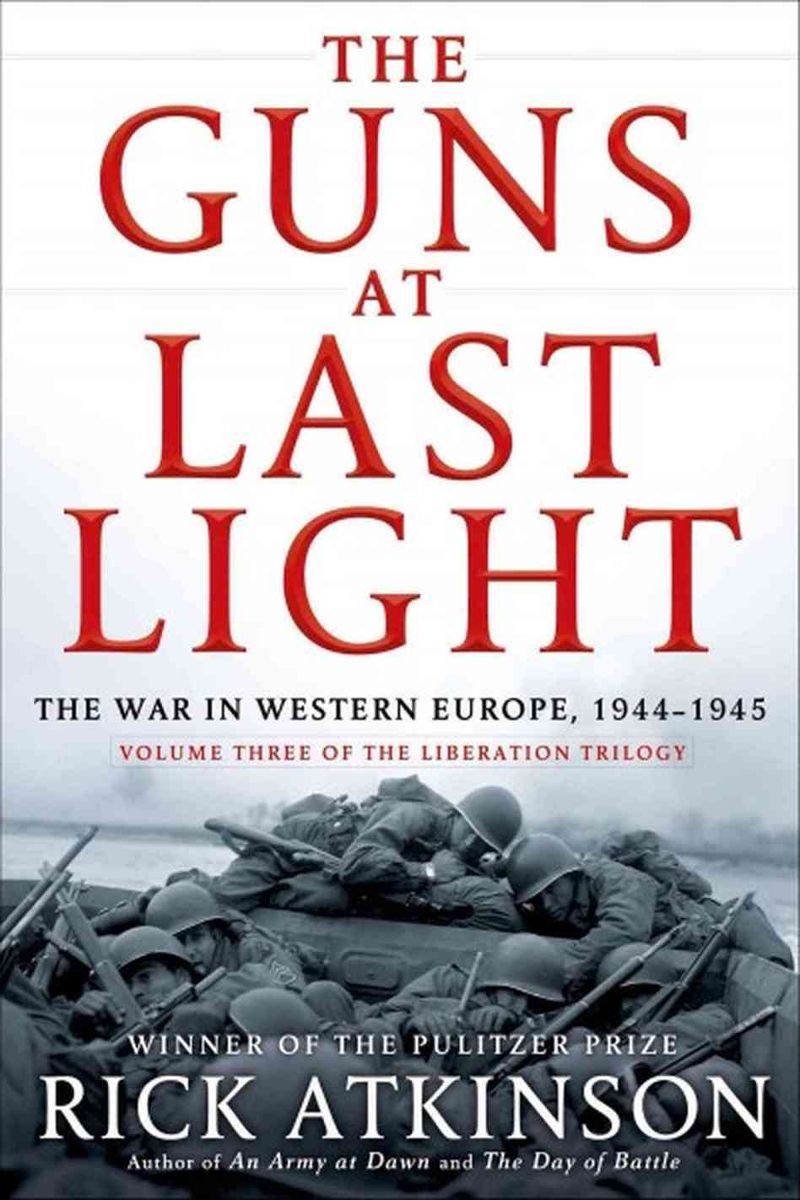Six Books to Read This Summer
Michael Levi, The Power Surge: Energy, Opportunity and the Battle for America’s Future
 In The Power Surge, Michael Levi, Director of the Council on Foreign Relations Program on Energy Security and Climate Change, explores the rapidly changing energy landscape in the United States. As climate change and ever-increasing worldwide demand shape global energy markets, two revolutions are unfolding. On the one hand, the country is facing an unparalleled increase in the production of fossil fuels thanks to the new discoveries and technologies, leading to unprecedented growth in previously stagnant areas while simultaneously igniting new rivalries and sources of dissension. On the other, a thriving renewable energy industry is pioneering new technologies in the hope of eventually leaving fossil fuels behind. New high-efficiency vehicles are cutting American emissions and windmills are providing economic stimulus to new parts of the country. Levi shows the growing divisions between both camps talking to “people who claim that natural gas can propel the U.S. economy in the twenty-first century, if only pesky environmentalists and other concerned citizens lay off” and vice versa. In a political landscape that has divided itself over predictable partisan lines, Levi concludes that the way ahead for the United States lies in a combination of the two paths, a “most of the above” energy strategy.
In The Power Surge, Michael Levi, Director of the Council on Foreign Relations Program on Energy Security and Climate Change, explores the rapidly changing energy landscape in the United States. As climate change and ever-increasing worldwide demand shape global energy markets, two revolutions are unfolding. On the one hand, the country is facing an unparalleled increase in the production of fossil fuels thanks to the new discoveries and technologies, leading to unprecedented growth in previously stagnant areas while simultaneously igniting new rivalries and sources of dissension. On the other, a thriving renewable energy industry is pioneering new technologies in the hope of eventually leaving fossil fuels behind. New high-efficiency vehicles are cutting American emissions and windmills are providing economic stimulus to new parts of the country. Levi shows the growing divisions between both camps talking to “people who claim that natural gas can propel the U.S. economy in the twenty-first century, if only pesky environmentalists and other concerned citizens lay off” and vice versa. In a political landscape that has divided itself over predictable partisan lines, Levi concludes that the way ahead for the United States lies in a combination of the two paths, a “most of the above” energy strategy.
Rick Atkinson, The Guns at Last Light
The final volume in Atkinson’ trilogy about the Allied victory in Europe during World War Two covers thethe conflict from D-Day until the final German surrender in Reims eleven months later. Atkinson tells the story through the eyes of soldiers, newspapers and both famous and ordinary civilians displaying a particular eye for poignant details, like the scribbling of French prisoners on Nazi torture chamber walls. Atkinson takes the reader from one battlefront to another giving the reader and especially good grasp of the strong personalities involved describing Montgomery as “tense as a mousetrap” and Patton as a war fanatic. Throughout he describes the bold landing in Normandy, the liberation of Paris the brutal Battle of the Bulge and the final death of the Nazi regime. Mustering a great number of sources, Atkinson has produced a large readable work that provides the reader with a comprehensive understanding of the final year of the Allied struggle in Europe.
Neil Irwin, The Alchemists: Three Central Bankers and the World on Fire
 Washington Post columnist Neil Irwin traces the actions of the three central bankers thrust in the spotlight during the Great Recession: Federal Reserve Chairman Ben Bernanke, Governor of the Bank of England Mervyn King and European Central Bank President Jean-Claude Trichet, men who share a “closeness unheard-of in international relations.” Irwin ably recounts how these men deployed trillions of dollars, euros and pounds to halt panic and restore confidence in the markets. Irwin, however, does not limit himself to explaining the present crisis but also tells the story of central banking from its tentative 17th century beginnings to its current fundamental role. Throughout The Alchemists, Irwin sheds light on the inner workers of central banks and the interdependence of politics and central bank actions, including the latter’s effect on indecision over budgetary deals in the U.S. and Europe. As Irwin writes, “It may seem like damning with faint praise, but a catastrophe averted is no small thing.” His book is as useful in helping the reader understand what did not happen as much as what happened.
Washington Post columnist Neil Irwin traces the actions of the three central bankers thrust in the spotlight during the Great Recession: Federal Reserve Chairman Ben Bernanke, Governor of the Bank of England Mervyn King and European Central Bank President Jean-Claude Trichet, men who share a “closeness unheard-of in international relations.” Irwin ably recounts how these men deployed trillions of dollars, euros and pounds to halt panic and restore confidence in the markets. Irwin, however, does not limit himself to explaining the present crisis but also tells the story of central banking from its tentative 17th century beginnings to its current fundamental role. Throughout The Alchemists, Irwin sheds light on the inner workers of central banks and the interdependence of politics and central bank actions, including the latter’s effect on indecision over budgetary deals in the U.S. and Europe. As Irwin writes, “It may seem like damning with faint praise, but a catastrophe averted is no small thing.” His book is as useful in helping the reader understand what did not happen as much as what happened.
Joseph Nye, Presidential Leadership and the Creation of the American Era
.jpeg) Former Kennedy School of Government Dean and author of The Future of Power Joseph Nye surveys the decisions and policies of the presidents who witnessed and enabled America’s rise to world prominence during the twentieth century. Nye pays especially close attention to the distinction between “transformative” presidents in the vein of Woodrow Wilson who seek to remake the world order and “transactional” presidents like Dwight Eisenhower and George H.W. Bush who limit themselves to managing world events for the best. The latter presidents have been unjustly discounted and in many ways their realist actions have also proven more ethically just. Nye presents his vision of liberal realism, a doctrine combining caution with a restrained interventionist bent. This ability to simultaneously maintain the primacy of the United States while holding onto a strong ethical scorecard ultimately make the presidency a difficult balancing act.
Former Kennedy School of Government Dean and author of The Future of Power Joseph Nye surveys the decisions and policies of the presidents who witnessed and enabled America’s rise to world prominence during the twentieth century. Nye pays especially close attention to the distinction between “transformative” presidents in the vein of Woodrow Wilson who seek to remake the world order and “transactional” presidents like Dwight Eisenhower and George H.W. Bush who limit themselves to managing world events for the best. The latter presidents have been unjustly discounted and in many ways their realist actions have also proven more ethically just. Nye presents his vision of liberal realism, a doctrine combining caution with a restrained interventionist bent. This ability to simultaneously maintain the primacy of the United States while holding onto a strong ethical scorecard ultimately make the presidency a difficult balancing act.
Jeremy Scahill, Dirty Wars: The World is a Battlefield
 After exploring the world of military contractors in Blackwater, Scahill analyzes the United States’ new covert wars and the world of American soldiers scattered throughout the world on a mission to hunt, capture and kill alleged terrorists with the approval of the executive branch. Reporting from Yemen, Somalia and other countries where America has concentrated its covert war on terror, away from the gaze of Congress, the press and the public, the author gives the reader an account of both the secret missions and the people carrying them out as well as of their beginnings under President Bush and expansion under President Obama. As the U.S. continues to invest more and more time and energy into covert actions around the world, Scahill argues that these actions will lead to large-scale destabilization and eventually backlash making the world less safe for Americans. As such covert tactics have been becoming more widespread, Scahill’s book gives the reader a helpful understanding of the policies the government attempts to hide.
After exploring the world of military contractors in Blackwater, Scahill analyzes the United States’ new covert wars and the world of American soldiers scattered throughout the world on a mission to hunt, capture and kill alleged terrorists with the approval of the executive branch. Reporting from Yemen, Somalia and other countries where America has concentrated its covert war on terror, away from the gaze of Congress, the press and the public, the author gives the reader an account of both the secret missions and the people carrying them out as well as of their beginnings under President Bush and expansion under President Obama. As the U.S. continues to invest more and more time and energy into covert actions around the world, Scahill argues that these actions will lead to large-scale destabilization and eventually backlash making the world less safe for Americans. As such covert tactics have been becoming more widespread, Scahill’s book gives the reader a helpful understanding of the policies the government attempts to hide.
Max Boot, Invisible Armies: An Epic History of Guerrilla Warfare from Ancient Times to the Present
 Senior Fellow at the Council on Foreign Relations, military historian and Great Decisions 2013 guest Max Boot traces the history of insurgencies from their start, with the nomadic tribes that entangled the advance of Alexander the Great, to the current troubles facing the United States. Parallel to this main history, Boot offers an account of the various strategies employed to fight insurgencies including such figures as Sir Gerald Templer, famous for crushing the Malayan insurgency, Edward Landsdale, who was active in counterinsurgency in both the Philippines and Vietnam, and most recently, General David Petraeus. Throughout, Boot provides a series of important lessons and reminds the reader that while heavily publicized, guerrillas are for the most part unsuccessful in their objectives. In tackling the oldest and most intractable form of warfare, Boot has written both a comprehensive history and a useful key to understanding America’s current commitments abroad.
Senior Fellow at the Council on Foreign Relations, military historian and Great Decisions 2013 guest Max Boot traces the history of insurgencies from their start, with the nomadic tribes that entangled the advance of Alexander the Great, to the current troubles facing the United States. Parallel to this main history, Boot offers an account of the various strategies employed to fight insurgencies including such figures as Sir Gerald Templer, famous for crushing the Malayan insurgency, Edward Landsdale, who was active in counterinsurgency in both the Philippines and Vietnam, and most recently, General David Petraeus. Throughout, Boot provides a series of important lessons and reminds the reader that while heavily publicized, guerrillas are for the most part unsuccessful in their objectives. In tackling the oldest and most intractable form of warfare, Boot has written both a comprehensive history and a useful key to understanding America’s current commitments abroad.






